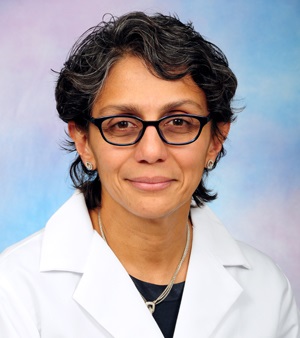A faculty member with the C.S. Mott Center for Human Growth and Development at the Wayne State University School of Medicine has secured a $50,000 grant to lead a project that aims to identify unique pathways involved in BRCA1 and BRCA2 mutated tumors, and to use that data to identify better therapeutic approaches for patients.

Study principal investigator Radhika Gogoi, M.D., Ph.D., won the Geri Fournier Ovarian Cancer Research Grant from the Ann Arbor-based Michigan Ovarian Cancer Alliance.
Current treatment with PARP inhibitors does not differentiate between BRCA1 and BRCA2 mutated tumors. PARP inhibitors, also called poly-ADP ribose polymerase inhibitors, are a substance that blocks an enzyme in cells called PARP, according to the National Cancer Institute.
PARP helps repair DNA when it becomes damaged. In cancer treatment, blocking PARP may help keep cancer cells from repairing their damaged DNA, causing them to die.
“The project looks to see the differences in mechanism and function between BRCA1 and BRCA2 mutated ovarian cancer and whether we can use that data to define better targeted therapy for each of those types of tumors,” Dr. Gogoi said.
She is an associate professor of Obstetrics and Gynecology and of Oncology, and a physician at the Barbara Ann Karmanos Cancer Institute. She specializes in Gynecologic Oncology, and is a clinician and cancer researcher with an interest in studying the role of the HIPPO pathway in gynecologic cancers as an opportunity to identify new therapeutic approaches.
Her health services and epidemiology research are focused on evaluating new opportunities to implement HPV vaccine education in underserved populations.